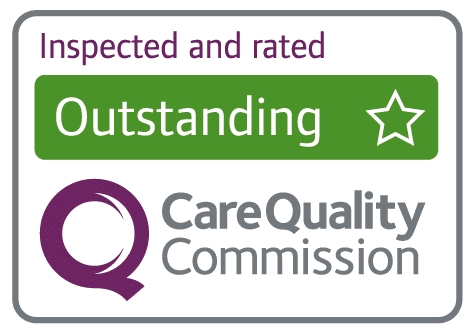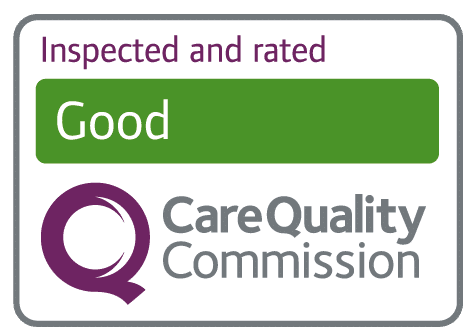“I did see low morale in the NHS, but I don’t see this in Connect – there is a real enthusiasm to do a great job and provide very accessible services to people living with persistent pain.”
I’ve always had a keen interest in the link between emotions, behaviour and pain
Helping to understand why people behave the way they do has always fascinated me and I studied psychology at A level and undergraduate level at Aston University in Birmingham. After I graduated, my first post was working in a chronic pain service in Birmingham in two different hospitals. In 2004, I completed a 3-year doctorate in clinical psychology and spent the first three years working with children in a community-based service.
After having 3 children I decided I wanted to return to working with adults, so worked for a hospital-based NHS MSK service.
I’ve always loved running and am doing a half Marathon in October this year to raise money for MIND. Having 3 young boys, I’m kept very busy and spend a lot of time on cricket pitches, both playing and observing! I also love to travel, my favourite destinations are Iceland and Italy.
My experience has always involved promoting physical wellbeing
I have always had a keen interest in supporting people with physical health problems. The link between emotional and physical wellbeing is a fascinating area within psychology. Alongside my work in chronic pain services, I have also worked with people with renal failure, cancer, neurological disorders and diabetes.
In 2016, the MSK service transferred over to Connect Health
I was offered TUPE but chose to leave as I didn’t want to take the plunge and work for an organisation I knew little about. I accepted a role as clinical lead for another company working with children, in order to develop my management skills. I continue to work in this role for 2 days per week.
A colleague of mine had been TUPE’d over to Connect at the time and we stayed in touch. He was very complimentary about Connect and was keen for me to join him in Wolverhampton and to set up pain management programmes.
It seemed an exciting prospect, so I reduced my hours to 2 days a week working with children and accepted the job at Connect working 3 days per week.
I joined Connect’s Wolverhampton MSK service in May 2018
I joined a really enthusiastic and dynamic team who are very good at working outside the box and I’ve seen this across Connect.
Things can become very dormant in NHS services especially as budgets shrink. I saw low moral, but I don’t see this in Connect.
We are encouraged to think creatively to improve accessibility to services, involving social media, webinars, apps or online material for people. This is crucial for people in pain who might struggle to come to the hospital.
One of the big benefits is I’m working with people who are really passionate about managing persistent MSK pain
My experience of joining the Wolverhampton team is I have been really well supported and welcomed by my manager, the regional manager and the pain team. Psychology has a different focus to physio and everyone is really open to learning more, creating a great MDT approach. Other benefits include the great discounts we get from a variety of retail outlets and getting a day off on your birthday (Connect contracts only).
I’ve joined a really enthusiastic and dynamic team who are very committed to improving the lives of people living with persistent pain and I’m excited about how we can be creative about embedding psychology into service delivery.
When someone becomes chronic we need a different set of tools to manage it
We move from trying to find a cure, to developing strategies to manage the pain. That requires an MDT approach which includes physio and psychology working alongside each other. I often liken chronic pain to throwing a stone into a lake. The stone represents the physical symptoms of the pain. However the ripples, which go far and wide, represent the impact on a person’s mood, relationships, activity levels, ability to work, how they view themselves and the world around them. Through physio and psychology working together we don’t just address the stone, we address the ripples as well.
My moto when it comes to chronic pain is – how can we help you to live a rich and meaingful life, despite and with the pain?
That involves helping people to identify their life values and helping them to act in ways that are in line with their values, rather than their pain. This approach has been fully embraced by the Wolverhampton pain team.
I’m very excited about the future
I feel confident that I will be able to help to develop psychology within pain and wider MSK services on a national basis as part of the MDT model. I think Connect offers a really good opportunity for psychologists with a special interest in MSK and pain to use their creative skills to set up and deliver services.
My advice to others currently thinking of a move from the NHS to Connect
I‘ve been in the position of feeling anxious, but for me it’s been a really positive move. So I would encourage people to find out more.
You can download Dr Sophie Gwinnett’s Story here
If you’d like to find out more about working at Connect, contact people@connecthealth.co.uk













